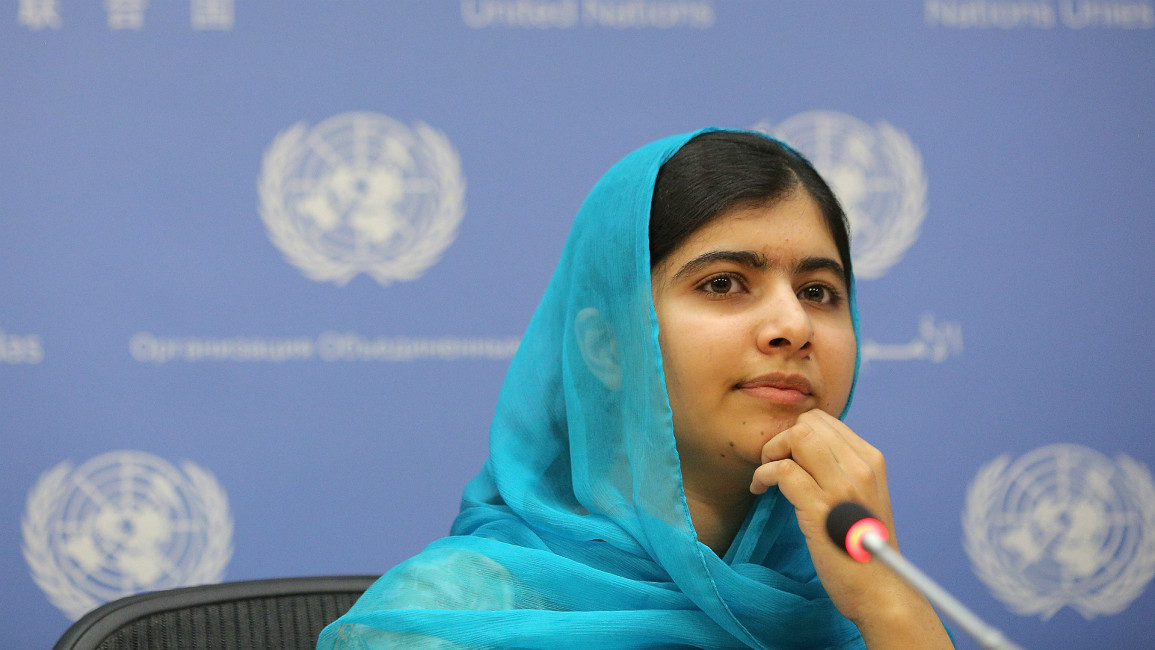Malala calls for Pakistan to stop deporting undocumented Afghans
Nobel laureate Malala Yousafzai called for Pakistan to stop deporting undocumented Afghans, saying she was especially concerned about the "dark future" awaiting women and girls sent back.
"It is deeply concerning that Pakistan is forcing Afghan refugees based in Pakistan back into Afghanistan, and I'm deeply concerned about the women and girls", the activist, who was awarded the Nobel Peace Prize in 2014, told AFP in an interview on Friday.
Despite extending leave for Afghan refugees with permits to stay in Pakistan for another year, Islamabad this week said it would remove illegal migrants.
More than 600,000 Afghans have fled Pakistan since Islamabad last year ordered undocumented migrants to leave or face arrest.
Human rights monitors have warned that some sent to Afghanistan faced persecution by the Taliban, who came into power in 2021 and have imposed an austere form of Islam, barring girls from higher education and excluding women and girls from areas of public life.
"A lot of these girls in Pakistan were studying, they were in school, these women were doing work", said Malala, 27, who grew up in Pakistan's Swat valley.
She had to move to the UK after she was shot, aged just 15, for resisting the Pakistan Taliban's then-ban on girls' education in her hometown.
"I hope that Pakistan reverses its policy and that they protect girls and women, especially because of the dark future that they would be witnessing in Afghanistan", she added.
'Principled engagement'
Speaking to AFP on her birthday, recognised by the UN as Malala Day, the activist launched into the challenges facing the only country in the world where girls over 12 are barred from school.
"I cannot believe that I'm witnessing a time when girls have been banned from their education for more than three years", she said, adding that while the situation was "shocking", she "admired the resilience of the Afghan activists."
The Malala Fund is campaigning for the UN to formally broaden its definition of crimes against humanity to include "gender apartheid" - a phrase the UN has used to describe the situation in Afghanistan.
Earlier this month, the UN and Taliban sat down for talks in Doha for the first time since the latter came to power, but without women in attendance.
Malala said the Doha talks made a "compromise on the future of women and girls", calling for a "principled engagement" with the Taliban.
"World leaders need to realise that when they sit down with the Taliban... and they're excluding women and girls, they are actually doing a Taliban a favour," she said.
"I want to call out those countries as well - that includes Canada and France - who have a feminist foreign policy" to "condemn" conversations like the Doha talks, she added.





 Follow the Middle East's top stories in English at The New Arab on Google News
Follow the Middle East's top stories in English at The New Arab on Google News
![The 2024 US presidential election could see a number of scenarios. [Brooke Anderson/TNA]](/sites/default/files/styles/image_330x185/public/2024-11/465246276_10161518878405709_4892796787428094119_n.jpg?h=ddb1ad0c&itok=d_sK5sIG)

